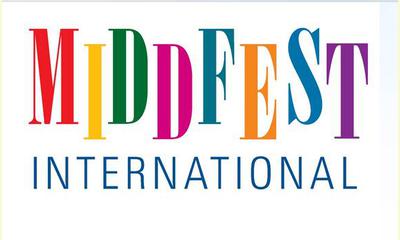|
|
Middfest Makes New International Friends (USA)
un articulo por Donna McDade
Each year since 1981 Middfest International has
celebrated a new country by bringing ambassadors,
artists and others from that country to our
community. The religions of the guest country, the
arts and crafts , the history, and the foods of
the the country are explored. As of this year 35
different countries have been featured.

click on photo to enlarge
100,000 local people are taught each year by our
visitors and exhibits. These include school and
university students, the volunteers, and the
audience who attends the event. Host families of
the invited guests learn much from their new
friends.
Hundreds of hours are invested by the volunteers as
they research all aspects of the new country. Local
groups are contacted who are from the selected
country and are asked to participate in the 3 day
weekend.
For 3 days there are continuous lectures, films,and
with continuous dances and singers on 2 outdoor
stages. Exhibits pertaining to the country are
shown. Games from the country are taught in a Super
Saturday event for children.
The economics of the country is discussed in
business meetings with the foreign and local
businesses. School children study the arts of the
country and attempt to duplicate them. The foreign
dancers and singers visit the schools and
demonstrate their specialties. Everyone in the
community contributes in the excitement.
Because of Middfest we have learned how much our
country is similar to the guest country. We have
made thousands of new international friends which
has contributed to world peace.
|








|
DISCUSSION
Pregunta(s) relacionada(s) al artículo :
Direct people-to-people contact and solidarity, How can it be promoted?
* * * * *
Comentario más reciente:
:
The examples from the countries of Central Asia are interesting. On the one hand, their history under the Soviet Union was not a pleasant one, because solidarity was imposed, sometimes even by force. On the other hand, the Soviet experience brought together many different nationalities and peoples and made possible many forms of voluntary, non-violent cooperation and solidarity.
An important question for the 21st Century is how this kind of international contact and solidarity can be promoted without involving states and their culture of war. As it says in the Constitution of UNESCO: "A peace based exclusively upon the political and economic arrangements of governments would not be a peace which could secure the unanimous, lasting and sincere support of the peoples of the world, and peace must therefore be founded, if it is not to fail, upon the intellectual and moral solidarity of mankind."

|
|









